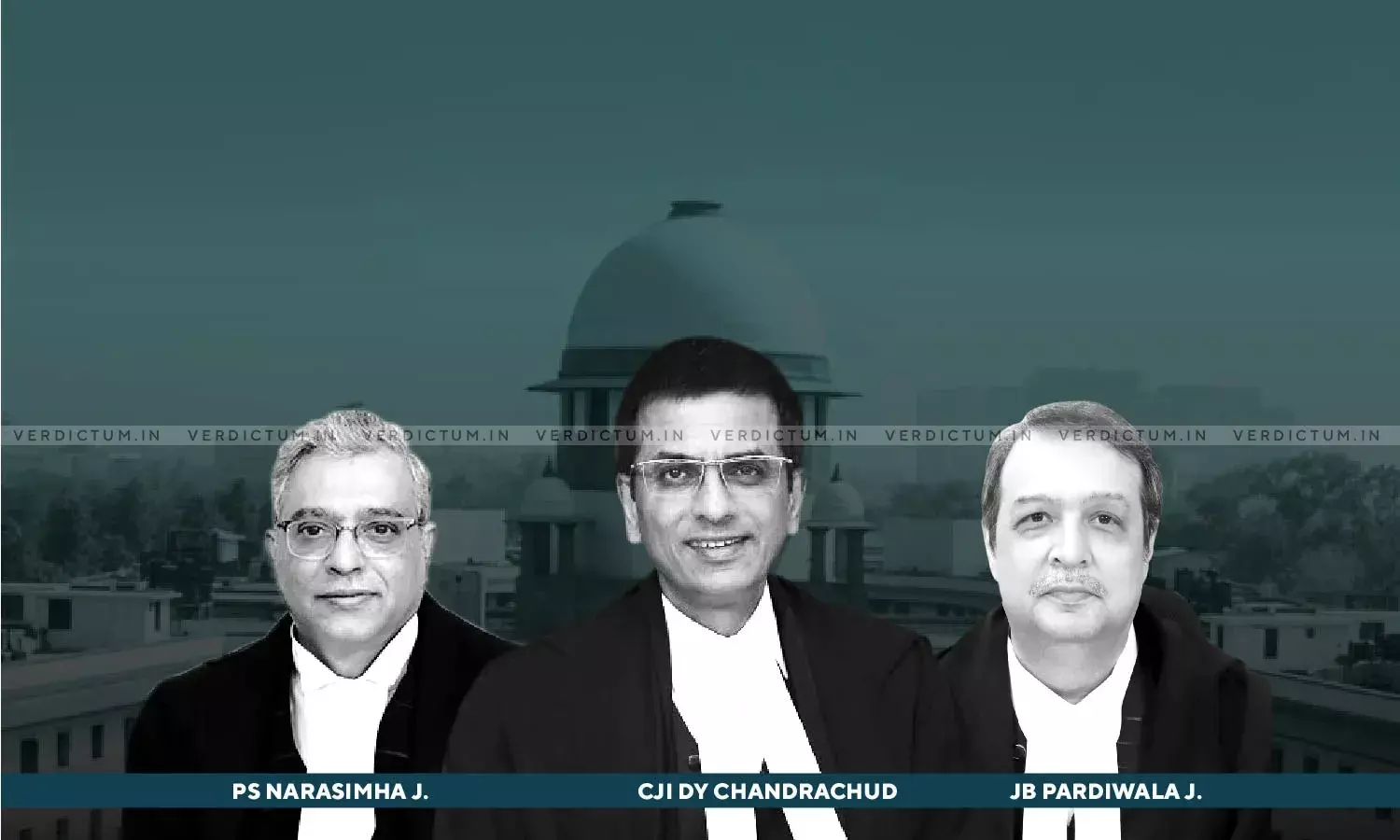SC Disposes Of Plea Challenging Appointment Of Rakesh Asthana As Delhi Police Commissioner, Keeps Open Legal Issues Involved
The Supreme Court on Monday disposed of a petition filed by an NGO challenging the appointment of now-retired IPS officer Rakesh Asthana as the Delhi Police Commissioner.
A bench of Chief Justice D Y Chandrachud and Justices P S Narasimha and J B Pardiwala, however, kept open the legal issue involved.
The top court said it will deal with the legal issue whether its judgement laying down the procedure for appointment of the Director General of Police (DGP) in states will also be applicable to the Delhi Police Commissioner.
Asthana, a 1984-batch Gujarat cadre IPS Officer, who was serving as the Director General of the Border Security Force, was appointed the Delhi Police Commissioner on July 27, 2021 just four days before he was scheduled to retire.
He was shifted to the Union Territory cadre from Gujarat cadre for one year. While dismissing the plea of NGO Centre for Public Interest Litigation (CPIL), the Delhi High Court had said the Supreme Court's decision in the Prakash Singh case, which mandated a minimum tenure for certain police officials and the constitution of a UPSC panel before selection, was not applicable to the appointment of the Police Commissioner for Delhi.
In its affidavit, the Centre had said the NGO's petition is an abuse of the process of law and, manifestly, an outcome of some personal vendetta against the then police commissioner.
The high court, in its verdict, had upheld the Centre's decision to appoint Asthana as the Delhi Police Commissioner, saying there was “no irregularity, illegality or infirmity” in his selection.
Dismissing the PIL challenging his selection, it had said the justification and reasons given by the Centre for appointing Asthana are "plausible, calling for no interference in judicial review".
The 2006 apex court verdict in the Prakash Singh case said the DGP of a state shall be "selected by the state government from amongst the three senior-most officers of the department who have been empanelled for promotion to that rank by the UPSC on the basis of their length of service, very good record and range of experience for heading the police force".
And, once a person has been selected for the job, they should have a minimum tenure of at least two years irrespective of the date of superannuation, it had said.
The DGP may, however, be relieved of his responsibilities by the state government acting in consultation with the State Security Commission, consequent upon any action taken against him under the All India Services (Discipline and Appeal) Rules or following his conviction in a court of law in a criminal offence or a case of corruption, or if he is otherwise incapacitated from discharging his duties, the court had said.
With PTI Inputs












